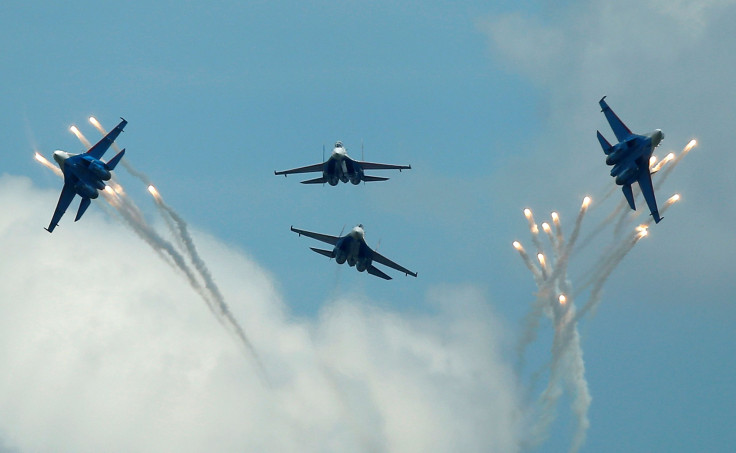Russia At War? New World Order In Baltics, Eastern Europe Drawing Concerns From NATO Members

In the latest occasion of Russia testing NATO’s member countries, the international military body’s jets reportedly intercepted Russian jets escorted by a bomber over the Baltic Sea last week, Newsweek reported Thursday, citing Lithuania’s government.
Russia’s military, especially over the last year, has buzzed both civilian aircraft and the airspace of several NATO members but the movement over Baltic states like Lithuania, Estonia and Latvia — each previously under Soviet Union control for decades during the Cold War — as well as Russia’s annexation of Crimea from Ukraine in 2014, has put many of the eastern NATO countries on edge.
The recent flyovers in NATO airspace occurred on Feb. 14 and 16, the report said, and Russia deployed an Il-22 bomber and two Su-27 fighter jets as they appeared to make a trip from Russia and back to Kaliningrad, territory it has controlled for decades nestled between Lithuania and Poland, which reportedly was used to station Russia’s Iskander missile system in December.
Russia has recently called for a new world order that isn’t so focused on the United States and other western powers, like NATO's assembling of 28 countries, it’s foreign minister said during a conference with world leaders last week.
In September, Russia’s Ministry of Defense responded to Iceland’s claims that three Tupolev Tu-160 bombers flew dangerously close to a commercial flight headed for Sweden as a “figment of their imagination.”
However, that flyover came only days after Sweden had deployed troops to thwart worries over a possible Russian invasion.
Russia’s increased testing of NATO members may not be a coincidence given President Donald Trump’s stance on the international body and how much the U.S. spends on defense compared to other top participants like Great Britain, France and Germany. Trump has repeatedly asked NATO members to pay their “fair share” of the defense budget, with many countries recently failing to meet the required allocation to NATO of 2 percent of their annual gross domestic product.
Last week, during his first trip to Brussels, where NATO is headquartered, Defense Secretary James Mattis essentially issued an ultimatum, the Washington Post reported.
“I owe it to you all to give you clarity on the political reality in the United States and to state the fair demand from my country’s people in concrete terms,” Mattis said. “America will meet its responsibilities, but if your nations do not want to see America moderate its commitment to the alliance, each of your capitals needs to show its support for our common defense.”
© Copyright IBTimes 2024. All rights reserved.











